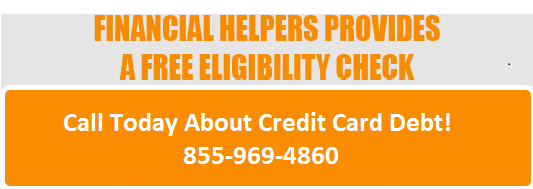*This is an advertorial*
Most of us think that love will conquer all… we might not say it out loud, but inside we do things that we know are not in our best interest for the sake of love and happily-ever-after… In other words, we put ourselves at risk and go all in for love.
That’s exactly what Britney did when she and her ex got an apartment together and he asked her to put all the bills in her name.
“I was crushed. I never thought he’d leave me for someone new, especially not with all HIS bills and bad credit… I thought he loved me, and that we were in this together… for the long haul.”
“I have a great job that I love, and I work really hard. My credit has always been excellent, and when I got with John, I never even thought about his credit.
Our relationship was fun and he was so sweet… After a year, we decided to get a small apartment together, so we could start saving money to get married.
Of course when he said the bills should go in my name because my credit is better than his, I thought nothing of it.
We shared the bills and were supposed to share in the wedding savings too, but he had to pay some other things off before he could start putting money toward the wedding fund – he said this would give us a clean, debt free slate to start off with.
I worked and saved, and worked and saved, and things just kept coming up… His car broke down, and he even had a couple really old bills that creditors began hounding him about.
One day he asked me if I’d open a new credit card to pay them off, and then he could just pay me. It seemed perfect… until he lost his job.
Not only was I paying for all of our living expenses, but now I had racked up more credit card bills too. Eventually I had to start making arrangements with creditors so that I could keep the lights on and make sure we had food…

That’s when the fighting began…
I guess we were both just really stressed. Late payments started getting marked on my credit: 30, 60 and 90 days late and one even went to collections.
I got a second job, and got caught up… Things seemed to be getting better, and he finally got a great job. The only problem was, I now had all these late payments and collections on my credit report so my score had dropped to 457!
Then one day I came home from work and he was gone. He sent me a text that said he thinks it’s best for him to stay with a friend so that he doesn’t cost me any more money and that we “clearly needed space”.
Well, I’m sure you know, my best friend found out that his “friend” was more than a friend, and that he’d been seeing her for a few months. I was devastated.
…And furious, but I was stuck.
Because of my crappy credit, I could no longer qualify for an apartment on my own, so I ended up moving back home with my parents. They were remodeling my room, so I had to sleep on the couch.
I was so embarrassed. While my ex-fiancé was livin’ it up with his new girlfriend, I was sleeping on a couch at my parents, with horrible credit. Who in their right mind would even want to date me?
I knew I had to do something about my credit, so I did what I always do, and started googling for advice. That was a can of worms! I found so many ads and tips and “instructions”… it was overwhelming, but I was determined to get my credit back so I tried whatever I could find.
As you can probably guess, my credit score still wasn’t budging. One day when I wasn’t expecting it, this quiz showed up on my Facebook newsfeed (of all places). It said I should find out what my #2 credit killer was and why my score won’t raise. I didn’t even know I had a #2 credit killer! So I checked it out.
It talked about how this lady named Ali made this quiz to help her clients…. I was skeptical at first, but nothing else had worked, and it was a FREE quiz, so I basically had nothing to lose, and took it.
That’s when everything changed…
It was the best decision ever. I seriously thought I had tried everything, but it turns out that I was doing the wrong things to raise my score all along. Some weird thing I had never even considered was what was actually keeping it low!
The quiz gave me some pretty simple steps to follow, and sure enough, my score skyrocketed! It’s been 5 ½ months now, and my score has already risen by 237 points. I wish that I found the quiz sooner; it would have saved me months of doing the wrong things and tons of stress.
And, guess what? I just signed for my own apartment. I feel like I’m on top of the world again!
Looking back, there are a lot of things that made this experience horrible, and the salt in my wound was being left with no options because of my bad credit score.
After all these months of struggle, trying to get back on feet, I’m on a mission to help keep others from experiencing this nightmare and spread the word.
I looked it up, and according to research over 68% of Americans are stuck with bad credit. Most of them struggle for years trying to figure out how to fix it while it costs them thousands in dollars and missed opportunities!
Don’t let yourself be a victim to this. 
Take this quick quiz and find out what your #2 Credit Killer is. You’ll be surprised at what’s really affecting your score and at how quickly you can raise it.
We all need and deserve good credit. So, don’t miss your opportunity to get this info for FREE! You owe it to yourself to take the quiz and see what’s really causing your score to be lower than it should be.
P.S. My best friend Sarah, the one I told you about above, took the quiz too. She raised her score by 181 and bought herself a BMW lol! Click here to discover what is your #2 credit killer.



